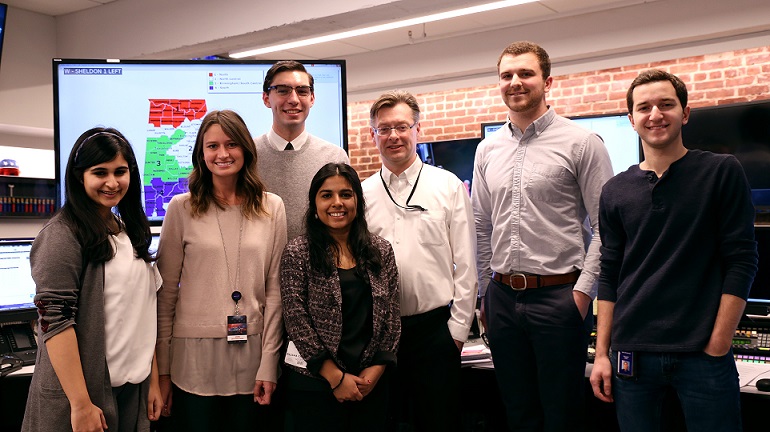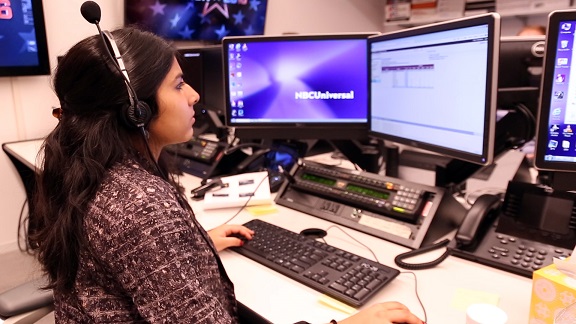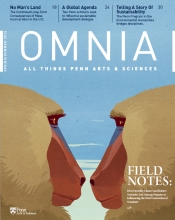Four Penn undergraduates are witnessing this extraordinary primary season from behind the “decision desk” at NBC, thanks to a new program run by John Lapinski, associate professor of political science and elections unit director for the network.
The Penn Program on Opinion Research and Election Studies (PORES) gives undergraduates the opportunity to conduct social research in the public interest on issues of national and international importance.
PORES aims to develop a data-driven approach to understanding political outcomes in the United States through public opinion survey research and poll analysis.
“A lot of people are looking at polling right now because of the election,” says Lapinski. “But polling in general is important because when we want to figure out how government can be responsive to its citizens, it’s the only really good vehicle we have. I think it’s important for the people making the policies that they should actually hear what the citizens have to say.”
PORES fellows take courses on survey research, American elections, and statistics, then put what they’ve learned into practice as they conduct research with Penn professors and work at NBC. Jacob Gardenswartz, C’18, LPS’18, describes his schedule on one primary Tuesday: “I had a midterm in the morning, then I went home, got dressed up, and took the train to New York,” says the San Diego, California native. “And whenever we go to NBC, it’s work, work, work from the get-go”—sometimes until after
midnight.
“When I tell people what I'm doing at PORES, they’re shocked that I’m an undergraduate student working at NBC’s election unit,” says Alisha Chowdhury, C’18, of New Orleans, Louisiana. “I feel blessed to be a part of this program. We’re fact-checking the numbers they’re putting out to millions of people.”
Chowdhury applied to be a PORES fellow as a freshman interested in criminal justice studies. She spent the summer working with Marc Meredith, associate professor of political science, on election studies of felon disenfranchisement laws in the U.S. “It gives me a different perspective on things, especially race relations, when we’re analyzing the polling data.”
Ten PORES fellowships each year are made possible by a gift from Robert A. Fox, C’52, and Penny Grossman Fox, ED’53, through the Fox Leadership Program. The fellows are also investigating new and innovative ways to do public opinion research, such as using social media, as well as studying policy positions and how people perceive whether government is working. Penn Arts and Sciences has created a survey research and data analytics minor for students who want to complement their primary area of study with an interdisciplinary focus on using data and survey research to better analyze politics and public policy.
“PORES will put Penn into the national conversation in a significant way,” Lapinski says. “We’ll be disseminating our research for the larger public debate. It’s a way to influence things, and because of our link with NBC, no other university has this opportunity.”
The fellows’ career plans range from criminal justice to an advanced degree in political economics to journalism, but the skills they’re learning will benefit them whoever they go. And, as students at a school located just 30 blocks from where the Constitution was signed, they’re seeing the U.S. system in a different way.
“It’s definitely given me a new perspective on democracy, because I’m watching it in action every night,” says Iman Charania, C’17, from Houston, Texas. “It’s just fascinating that the things I learn in class are happening in the real world. I get to see not just how people vote or why they vote, but what happens when you don’t vote.”
“We’re becoming able to find the humanity in the numbers,” says Gardenswartz, who is also earning his master’s degree at Fels Institute of Government. “In the abstract it might look like a lot of dots on a plane. But in the PORES context it means thinking about who those people are and what they’re saying and who they want to be their leader.”





